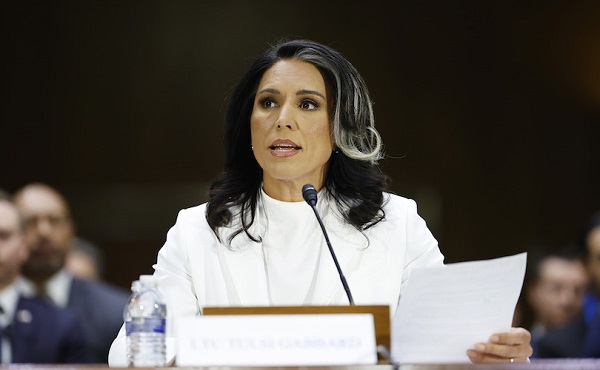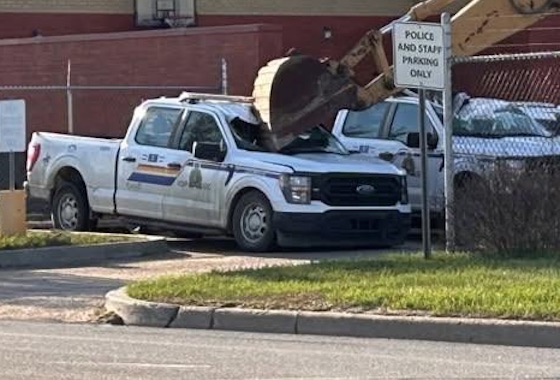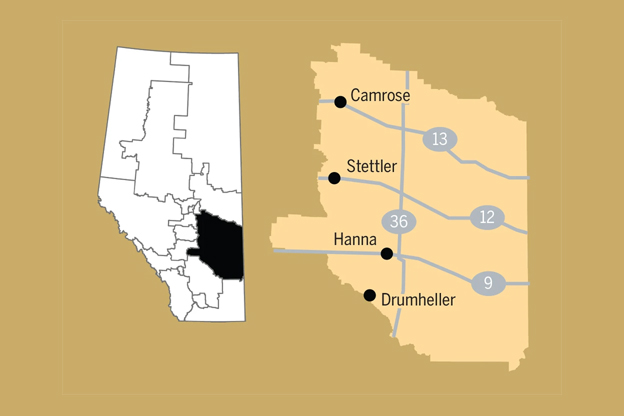Uncategorized
Kavanaugh faces crucial vote, White House eyes GOP senators

WASHINGTON — Supreme Court nominee Brett Kavanaugh faced a crucial vote Friday as a Senate panel decides whether to move his nomination on to the full Senate a day after he adamantly denied sexually assaulting Christine Blasey Ford, who insisted she’s “100
Meanwhile, there were signs the remarkable testimony before the panel — in which Kavanaugh angrily declared his innocence and Ford calmly recounting the moment in which she says he attacked her — had registered negatively with two organizations whose support Kavanaugh had earlier received.
The American Bar Association, which previously gave Kavanaugh its highest rating of “well qualified,” asked the Senate Judiciary Committee and the full Senate to delay the vote until the FBI could do a full background check on the assault claims — something President Donald Trump has refused to order.
White House spokeswoman Sarah Huckabee Sanders dismissed that Friday, telling reporters that Kavanaugh has already “been through six separate background investigations by the FBI.”
Late Thursday, the magazine of the Jesuit religious order in the United States withdrew its endorsement of Kavanaugh, saying the nomination was no longer in the interests of the country and “should be withdrawn.”
“If Senate Republicans proceed with his nomination, they will be prioritizing policy aims over a woman’s report of an assault,” the America magazine editors wrote. “Were he to be confirmed without this allegation being firmly disproved, it would hang over his future decisions on the Supreme Court for decades and further divide the country.”
The magazine’s reversal is significant given Kavanaugh has repeatedly cited his Roman Catholic faith and his years as a student at the Jesuit-run Georgetown Prep school in Maryland.
Former President George W. Bush has been advocating for Kavanaugh with wavering senators in recent days, according to a person familiar with Bush’s outreach who wasn’t authorized to speak publicly.
The White House said it was also engaging with wavering GOP senators, but provided few details. Trump is publicly standing by his nominee.
“His testimony was powerful, honest and riveting,” he tweeted late Thursday. “The Senate must vote!”
Thursday’s testimony appears to have only sharpened the partisan divide over Trump’s nominee. Republicans praised Ford’s bravery in coming forward, but many of them said her account won’t affect their support for Kavanaugh.
The Senate Judiciary Committee, where the initial vote on Kavanaugh will be held, is narrowly split with an 11-10 Republican majority. Democrats are expected to oppose the nominee. But even if the panel deadlocks on whether to recommend the judge for confirmation, the full Senate could start taking procedural votes Saturday on Kavanaugh, setting up a final vote as soon as Tuesday.
“We’re going to move forward,” said Senate Majority Leader Mitch McConnell, R-Ky., as he exited a private late night strategy session with Republican senators. “The committee is going to vote.”
Of the 11 Republicans on the Judiciary Committee, only the vote of GOP Sen. Jeff Flake of Arizona remains in doubt. The retiring senator, who has stayed quiet in recent days, told reporters late Thursday, “this isn’t easy.”
Flake said the marathon hearing left him “with as much doubt as certainty.” He said, “We just do the best we can.”
At the daylong session Thursday, Ford and Kavanaugh both said the event and the public controversy that has erupted 36 years later had altered their lives forever and for the worse — perhaps the only thing they agreed on during a long day of testimony that was a study in contrasts of tone as well as substance.
Coming forward publicly for the first time, Ford, a California psychology professor, quietly told the nation and the Senate Judiciary Committee her long-held secret of the alleged assault in locked room at a gathering of friends when she was just 15. The memory — and Kavanaugh’s laughter during the act — was “locked” in her brain, she said: “100
“You have replaced ‘advice and consent’ with ‘search and destroy,” he said, referring to the Constitution’s charge to senators’ duties in confirming high officials.
Repeatedly Democrats asked Kavanaugh to call for an FBI investigation into the claims. He did not.
“I welcome whatever the committee wants to do,” he said.
Republicans are reluctant for several reasons, including the likelihood that further investigations could push a vote past the November elections that may switch Senate control back to the Democrats and make consideration of any Trump nominee more difficult.
Across more than 10 hours, the senators heard from only the two witnesses. Ford delivered her testimony with steady, deliberate certitude. She admitted gaps in her memory as she choked back tears and said she “believed he was going to rape me.” Kavanaugh entered the hearing room fuming and ready to fight, as he angrily denied the charges from Ford and other women accusing him of misconduct, barked back at senators and dismissed some questions with a flippant “whatever.”
“You may defeat me in the final vote, but you’ll never get me to quit, never,” he said.
Trump nominated the conservative jurist in what was supposed to be an election year capstone to the GOP agenda, locking in the court’s majority for years to come. Instead the nomination that Republicans were rushing for a vote now hangs precariously after one of the most emotionally charged hearings Capitol Hill has ever seen. Coming amid a national reckoning over sexual misconduct at the top of powerful institutions, it exposed continued divisions over justice, fairness and who should be believed. And coming weeks before elections, it ensured that debate would play into the fight for control of Congress.
Wearing a blue suit as Anita Hill did more two decades ago when she testified about sexual misconduct by Clarence Thomas, Ford, a psychology professor, described what she says was a harrowing assault in the summer of 1982: How an inebriated Kavanaugh and another teen, Mark Judge, locked her in a room at a house party as Kavanaugh was grinding and groping her. She said he put his hand over her mouth to muffle her screams.
“I believed he was going to rape me,” she testified, referring to Kavanaugh.
Judge has said he does not recall the incident and he reiterated that point in a letter to the committee released late Thursday.
When the committee’s top Democrat, Sen. Dianne Feinstein of California, asked how she could be sure that Kavanaugh was the attacker, Ford said, “The same way I’m sure I’m talking to you right now.” Later, she told Sen. Dick Durbin, D-Ill., that her certainty was “100
Asked by Sen. Patrick Leahy, D-Vt., for her strongest memory of the alleged incident, Ford, said it was the two boys’ laughter.
“Indelible in the hippocampus is the laughter,” said Ford, who is a research psychologist, “the uproarious laughter between the two.”
An angry Kavanaugh, who testified after Ford, declared: “My family and my name have been totally and permanently destroyed.”
He lashed out over the time it took the committee to convene the hearing after Ford’s allegations emerged, singling out the Democrats for “unleashing” forces against him.
“This confirmation process has become a national disgrace,” he said. He mocked Ford’s allegations — and several others since — that have accused him of sexual impropriety. He scolded the senators saying their advice-and-consent role had become “search and destroy.”
Even if senators turn vote down his confirmation, he said, “you’ll never get me to quit.”
Kavanaugh, who has two daughters, said one of his girls said they should “pray for the woman” making the allegations against him, referring to Ford. “That’s a lot of wisdom from a 10-year-old,” he said chocking up. “We mean no ill will.”
The judge repeatedly refused to answer senators’ questions about the hard-party atmosphere that has been described from his peer group at Georgetown Prep and Yale, treating them dismissively.
“Sometimes I had too many beers,” he acknowledged. “I liked beer. I still like beer. But I never drank beer to the point of blacking out, and I never sexually assaulted anyone. “
___
Associated Press writers Kevin Freking, Mary Clare Jalonick, Juliet Linderman, Padmananda Rama, Matthew Daly, Julie Pace and AP photographers J. Scott Applewhite and Carolyn Kaster contributed to this report.
Lisa Mascaro, Alan Fram And Catherine Lucey, The Associated Press
Uncategorized
Poilievre on 2025 Election Interference – Carney sill hasn’t fired Liberal MP in Chinese election interference scandal

From Conservative Party Communications
“Yes. He must be disqualified. I find it incredible that Mark Carney would allow someone to run for his party that called for a Canadian citizen to be handed over to a foreign government on a bounty, a foreign government that would almost certainly execute that Canadian citizen.
“Think about that for a second. We have a Liberal MP saying that a Canadian citizen should be handed over to a foreign dictatorship to get a bounty so that that citizen could be murdered. And Mark Carney says he should stay on as a candidate. What does that say about whether Mark Carney would protect Canadians?
“Mark Carney is deeply conflicted. Just in November, he went to Beijing and secured a quarter-billion-dollar loan for his company from a state-owned Chinese bank. He’s deeply compromised, and he will never stand up for Canada against any foreign regime. It is another reason why Mr. Carney must show us all his assets, all the money he owes, all the money that his companies owe to foreign hostile regimes. And this story might not be entirely the story of the bounty, and a Liberal MP calling for a Canadian to be handed over for execution to a foreign government might not be something that the everyday Canadian can relate to because it’s so outrageous. But I ask you this, if Mark Carney would allow his Liberal MP to make a comment like this, when would he ever protect Canada or Canadians against foreign hostility?
“He has never put Canada first, and that’s why we cannot have a fourth Liberal term. After the Lost Liberal Decade, our country is a playground for foreign interference. Our economy is weaker than ever before. Our people more divided. We need a change to put Canada first with a new government that will stand up for the security and economy of our citizens and take back control of our destiny. Let’s bring it home.”
Uncategorized
Canada Needs A Real Plan To Compete Globally

From the Frontier Centre for Public Policy
Ottawa’s ideological policies have left Canada vulnerable. Strategic action is needed now
As Canada navigates an increasingly complex geopolitical landscape, the next federal government must move beyond reflexive anti—Americanism regardless of its political leanings. Instead, Canada should prioritize national interests while avoiding unnecessary conflict and subservience.
The notion that Canada can stand alone is as misguided as the idea that it is only an economic appendage of the United States. Both perspectives have influenced policy in Ottawa at different times, leading to mistakes.
Rather than engaging in futile name-calling or trade disputes, Canada must take strategic steps to reinforce its autonomy. This approach requires a pragmatic view rooted in Realpolitik—recognizing global realities, mitigating risks, governing for the whole country, and seizing opportunities while abandoning failed ideologies.
However, if Washington continues to pursue protectionist measures, Canada must find effective ways to counteract the weakened position Ottawa has placed the country in over the past decade.
One key strategy is diversifying trade relationships, notably by expanding economic ties with emerging markets such as India and Southeast Asia. This will require repairing Canada’s strained relationship with India and regaining political respect in China.
Unlike past Liberal trade missions, which often prioritized ideological talking points over substance, Canada must negotiate deals that protect domestic industries rather than turning summits into platforms for moral posturing.
A more effective approach would be strengthening partnerships with countries that value Canadian resources instead of vilifying them under misguided environmental policies. Expand LNG exports to Europe and Asia and leverage Canada’s critical minerals sector to establish reciprocal supply chains with non-Western economies, reducing economic reliance on the U.S.
Decades of complacency have left Canada vulnerable to American influence over its resource sector. Foreign-funded environmental groups have weakened domestic energy production, handing U.S. industries a strategic advantage. Ottawa must counter this by ensuring Canadian energy is developed at home rather than allowing suppressed domestic production to benefit foreign competitors.
Likewise, a robust industrial policy—prioritizing mining, manufacturing, and agricultural resilience—could reduce dependence on U.S. and Chinese imports. This does not mean adopting European-style subsidies but rather eliminating excessive regulations that make Canadian businesses uncompetitive, including costly domestic carbon tariffs.
Another key vulnerability is Canada’s growing military dependence on the U.S. through NORAD and NATO. While alliances are essential, decades of underfunding and neglect have turned the Canadian Armed Forces into little more than a symbolic force. Canada must learn self-reliance and commit to serious investment in defence.
Increasing defence spending—not to meet NATO targets but to build deterrence—is essential. Ottawa must reform its outdated procurement processes and develop a domestic defence manufacturing base, reducing reliance on foreign arms deals.
Canada’s vast Arctic is also at risk. Without continued investment in northern sovereignty, Ottawa may find itself locked out of its own backyard by more assertive global powers.
For too long, Canada has relied on an economic model that prioritizes federal redistribution over wealth creation and productivity. A competitive tax regime—one that attracts investment instead of punishing success—is essential.
A capital gains tax hike might satisfy activists in Toronto, but it does little to attract investments and encourage economic growth. Likewise, Ottawa must abandon ideological green policies that threaten agri-food production, whether by overregulating farmers or ranchers. At the same time, it must address inefficiencies in supply management once and for all. Canada must be able to feed a growing world without unnecessary bureaucratic obstacles.
Ottawa must also create an environment where businesses can innovate and grow without excessive regulatory burdens. This includes eliminating interprovincial trade barriers that stifle commerce.
Similarly, Canada’s tech sector, long hindered by predatory regulations, should be freed from excessive government interference. Instead of suffocating innovation with compliance mandates, Ottawa should focus on deregulation while implementing stronger security measures for foreign tech firms operating in Canada.
Perhaps Ottawa’s greatest mistake is its knee-jerk reactions to American policies, made without a coherent long-term strategy. Performative trade disputes with Washington and symbolic grandstanding in multilateral organizations do little to advance Canada’s interests.
Instead of reacting emotionally, Canada must take proactive steps to secure its economic, resource, and defence future. That is the role of a responsible government.
History’s best strategists understood that one should never fight an opponent’s war but instead dictate the terms of engagement. Canada’s future does not depend on reacting to Washington’s policies—these are calculated strategies, not whims. Instead, Canada’s success will be determined by its ability to act in the interests of citizens in all regions of the country, and seeing the world as it is rather than how ideological narratives wish it to be.
Marco Navarro-Génie is the vice president of research at the Frontier Centre for Public Policy. With Barry Cooper, he is co-author of Canada’s COVID: The Story of a Pandemic Moral Panic (2023).
-
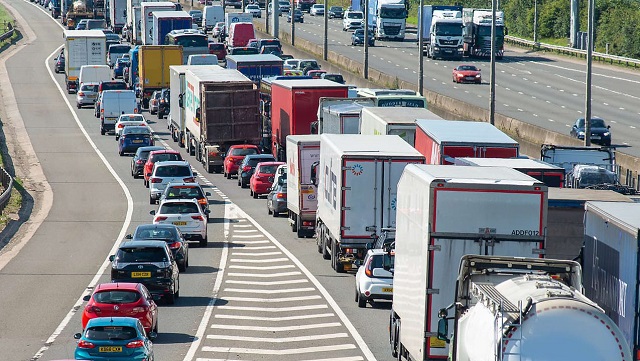
 Daily Caller2 days ago
Daily Caller2 days agoMisguided Climate Policies Create ‘Real Energy Emergency’ And Permit China To Dominate US
-

 COVID-191 day ago
COVID-191 day agoStudy finds nearly half of ‘COVID deaths’ had no link to virus
-
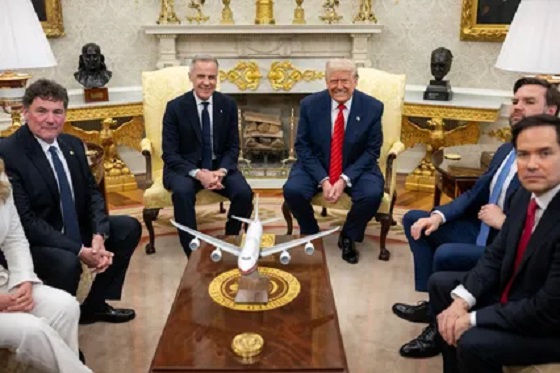
 Business2 days ago
Business2 days agoAfter successful anti-American election campaign, Carney pivots to embrace US: Hails Trump as a “transformational president”
-
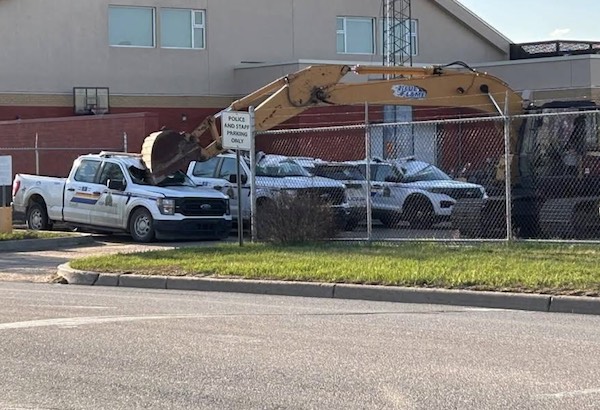
 Alberta2 days ago
Alberta2 days agoBonnyville RCMP targeted by suspect driving a trackhoe – Update
-
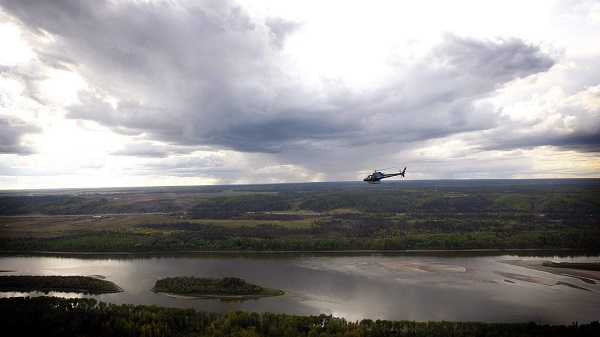
 Alberta2 days ago
Alberta2 days agoEnergy projects occupy less than three per cent of Alberta’s oil sands region, report says
-

 Alberta2 days ago
Alberta2 days agoCharges laid in record cocaine seizure
-

 2025 Federal Election1 day ago
2025 Federal Election1 day agoCarney says Liberals won’t make voting pact with NDP
-
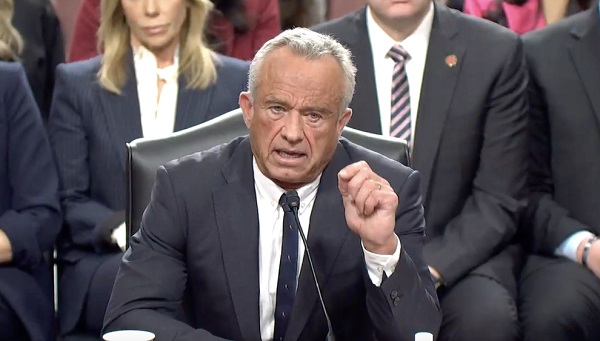
 Autism23 hours ago
Autism23 hours agoNIH, CMS partner on autism research
